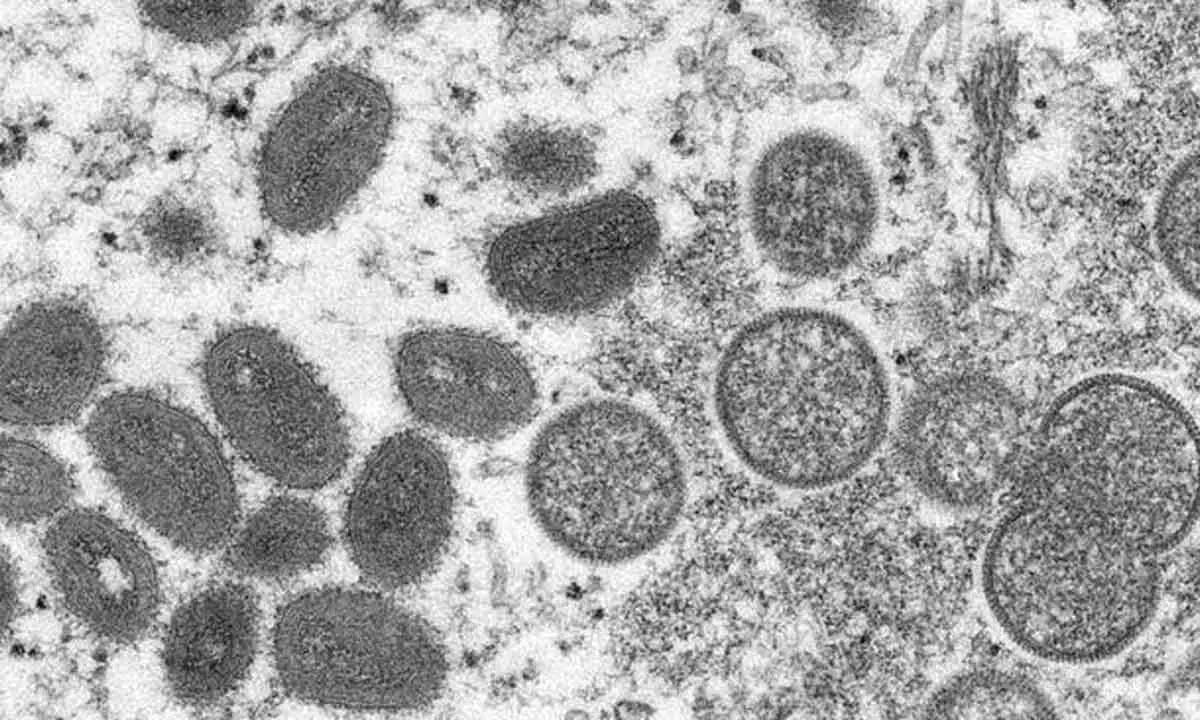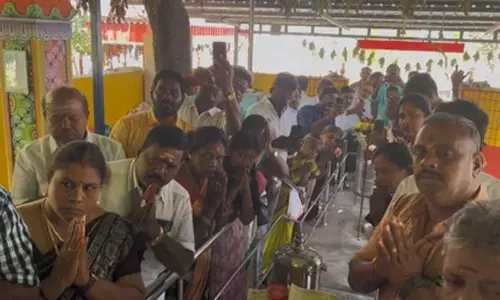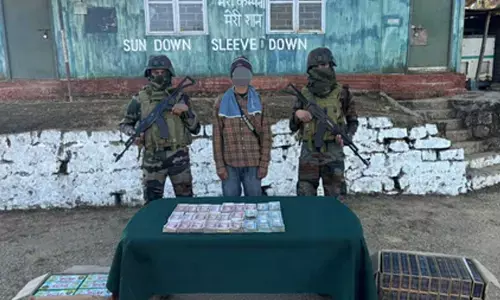Monkeypox virus: Don't panic but be prepared

Monkeypox virus
Over 31,000 cases of monkeypox have been reported worldwide so far. While people around the world have been trying to get over Covid-19, monkeypox has been declared a public health emergency by the World Health Organisation (WHO), reminding people about the pandemic blues where they had to isolate themselves.
Bengaluru: Over 31,000 cases of monkeypox have been reported worldwide so far. While people around the world have been trying to get over Covid-19, monkeypox has been declared a public health emergency by the World Health Organisation (WHO), reminding people about the pandemic blues where they had to isolate themselves. While it is something to be worried about, this is not on the scale of the pandemic unlike Covid-19.
Although Monkeypox isn't as transmissible as Covid-19, it is a cause for concern since it spreads through close physical contact with an infected person or an animal. "Monkeypox, caused by the monkeypox virus spreads through close contact with an infected animal or person or through handling materials that have been in contact with monkeypox. Unlike influenza or Covid-19, the transmission of monkeypox through respiratory droplets requires prolonged face-to-face contact. This is usually reserved for families and healthcare workers." says Dr Pruthu Narendra Dhekane, Consultant Infectious Diseases, Fortis Hospital.
Another reason for concern is due to its complications and secondary infections that it may lead to. "Monkeypox complications include secondary infections, bronchopneumonia, sepsis, encephalitis, and corneal infection with subsequent vision loss. Keep in mind that monkeypox is usually self-limiting and does not spread easily between people without close contact," he adds.
While monkeypox is a self-limiting disease that typically lasts from 2 to 4 weeks, severity depends on the patient's health status. "Severe cases are more common in children and are linked to the extent of virus exposure, the patient's health status, and the type of complications. Immune deficiencies may contribute to poorer outcomes. Although vaccination against smallpox was once effective, people under the age of 40 to 50 (depending on the country) may now be more vulnerable to monkeypox due to the global cessation of smallpox vaccination campaigns following the disease's eradication. However, it is unknown how widespread asymptomatic infection can be," he explains.
Since monkeypox is a zoonotic virus, it spreads from animals to humans. "Monkeypox is transmitted to humans through close contact with an infected animal, or through contact with virus-contaminated material.Close contact with animals is a lesser-known risk factor than close human contact to spread the lesions. Usually domesticated animals, especially cats /dogs/birds, are unknown reservoirs of monkeypox," he adds.
However, the likelihood of Monkeypox becoming a pandemic is extremely low. "Unlike SARS CoV2, which is a respiratory virus that spreads through the air (both particles and droplets), the Monkeypox virus requires direct skin-to-skin contact with the affected person and thus reduces the chances of being declared a pandemic due to its lesser transmissibility than Covid. As a result, the chances of transmission going undetected are nil. It is also a relatively stable virus with a slow mutation rate," he states.
It is necessary to take precautions to avoid infection or the spread of monkeypox. "Avoid animals that may be infected with the virus, prevent using clothes, sheets, blankets, or other materials that have come in contact with an infected animal or person, separate monkeypox patients from healthy people and wash your hands with soap and water regularly," he concludes.














